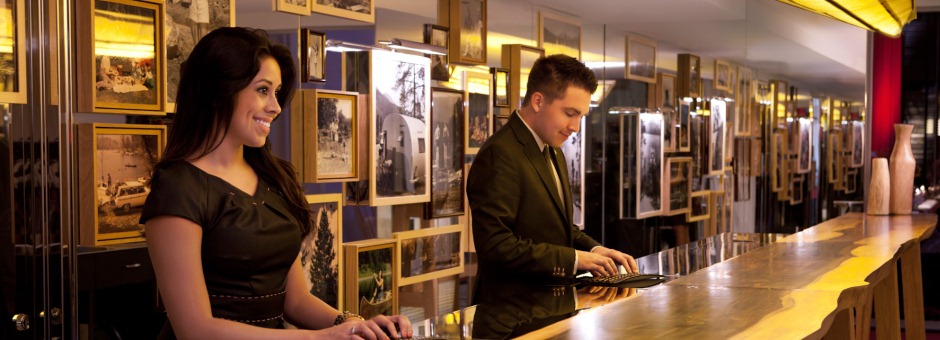BLLA: Boutiques Must Get Creative to Survive
Times are tough across the board, but the boutique hotel landscape will change drastically and come out of the COVID-19 pandemic looking dramatically different, according to the co-founder and COO of the Boutique Lifestyle Leaders Association, Ariela Kiradjian.

Kiradjian helped her mother Frances launch BLLA in 2007 to organize independent hospitality leaders and provide networking, education and advocacy. More recently, she founded StayBoutique, a curated guide to lifestyle hotels, brands and experiences. In late March, in response to COVID-19’s effects on travel and lodging, the sister companies launched two new initiatives: #SaveBoutiqueHotels is geared toward connecting travel agents, bloggers and influencers; and #BoutiqueStrong is all about gathering boutique hotel business leaders.
 Despite the obvious challenges, Kiradjian says hoteliers cannot stop marketing as we ride out the effects of coronavirus. Instead, she suggests pivoting: finding creative ways to use your rooms and spaces and sharing those stories.
Despite the obvious challenges, Kiradjian says hoteliers cannot stop marketing as we ride out the effects of coronavirus. Instead, she suggests pivoting: finding creative ways to use your rooms and spaces and sharing those stories.
“Pioneers are created through a crisis, and in our history, it’s the boutique hoteliers that have always taken the lead – not only on goodwill but also through innovation,” she says.
We recently caught up with Kiradjian to get her take on how COVID-19 is uniquely affecting the boutique hotel industry.
Q: How do you define a boutique hotel?
Kiradjian: The official industry definition by BLLA for boutique is a business that offers a curated service, product or experience that is one-of-a-kind. Typically, it is upscale and provides a memorable impression due to its distinct approach. So, a boutique hotel would be one that focuses on overnight experiences.
Q: How is the COVID-19 travel pandemic uniquely affecting boutique hotels as opposed to franchised hotels?
Kiradjian: On the negative side, larger companies have enough cash to survive 12-plus months, but smaller companies normally have enough cash for one to three months. This means having to layoff or furlough employees immediately as some can’t operate even with a skeleton staff.
But on the positive side, because boutique hotels are created from a passion for experiences, they have been the first to get creative. From starting blogs to online programming, they are exhibiting true leadership by connecting with guests through a pandemic.
Q: Of the boutique hotels that have stayed open, who are they hosting and how are operations different?
Kiradjian: For those in urban cities, they’ll be housing the frontline, homeless and sometimes hospitality patients. In Los Angeles and elsewhere, there are new government initiatives in place that will pay hotels to house these people.
A great example of hotels getting involved in their community to assist in the COVID-19 fight would be Domio (the hybrid hotel-apartment brand has offered free lodging to medical personnel), as they strategically and successfully marketed their goodwill from helping house frontline heroes. Also, like many, SBE Founder and CEO Sam Nazarian was forced to lay off many staff members, so he decided to send care packages to them to help.
Q: From what you’ve heard, when do most hoteliers expect demand to return? What segments of guests will come back first?
Kiradjian: Honestly, this prediction changes every time I wake up in the morning. Last week, I thought we would be back and running July 1, then with another downturn in winter to finally fully come out of this in April 2021. However, now, it’s looking like hotels will be closed in summer as well.
Q: What are some things hoteliers could be doing during this downtime?
Kiradjian: My number one piece of advice: Do not stop marketing as this is the worst thing you can do. Don’t try to sell your hotel rooms, but get creative.
Q: Coming out of this, how do you think the hospitality industry will look different? Will there be fewer hotels? Which will be affected more – leisure or business travel?
Kiradjian: I believe about 30% of hotels above 350 rooms will be turned into multi-use buildings. It breaks my heart to say this, but I do also believe we will lose a lot of our boutique hotels who have one property (though BLLA will do everything in our power to prevent this).
However, in the long run, smaller hotels (below 250 rooms) and island/adventure hotels will have the greatest and quickest comeback. When we launched our Industry Official Boutique Hotel Categories in January, everyone’s favorite category was “Adventure Boutique.”
Q: Will the dynamic between boutique and franchised properties be any different in the new world?
Kiradjian: After this crisis, the franchised properties are going to shift and take boutique and independent hotels more seriously now. I’m nearly certain that many flagged properties will unflag after this as well. We have an upcoming campaign called #BoutiqueStrong that will gather the world’s boutique hotel pioneers to show unity amid this.
Learn more about #SaveBoutiqueHotels and #BoutiqueStrong on Facebook.
Photo: SLS South Beach

